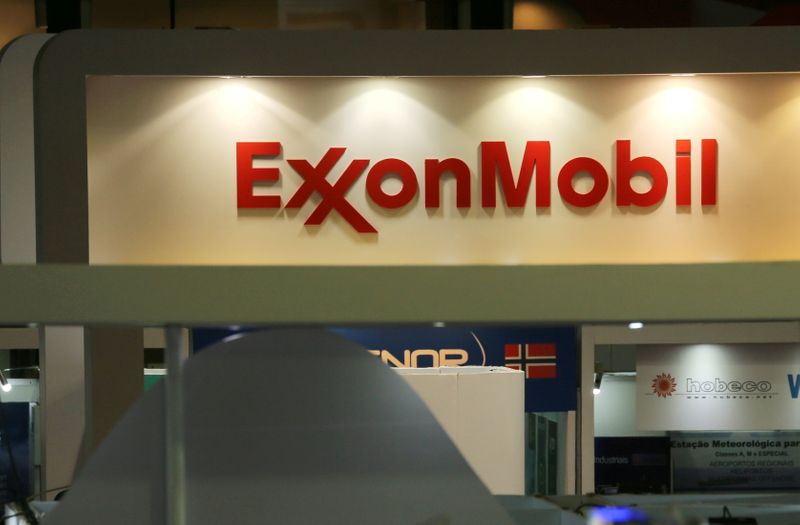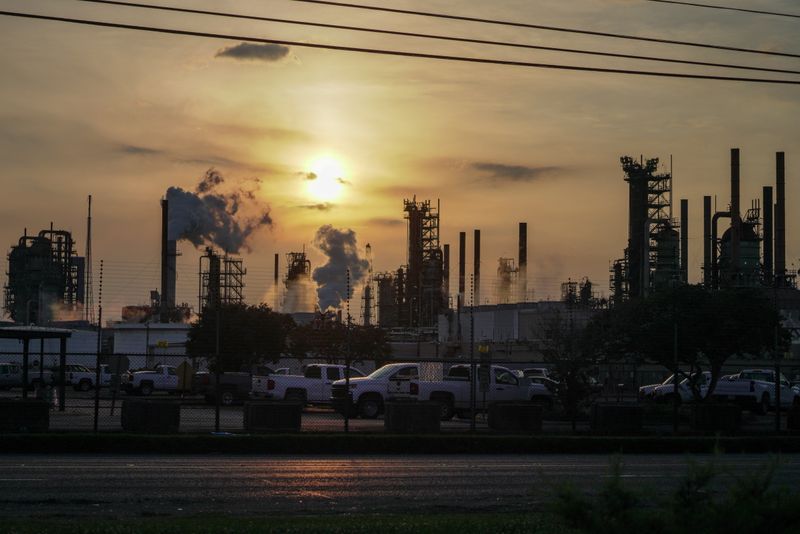HOUSTON (Reuters) -Exxon Mobil Corp on Wednesday said for the first time in a securities filing that some of its oil and gas properties may face impairment due to climate change.
The largest U.S. oil company’s board will test assets for climate impairments “in the context of overall enterprise risk” during the annual asset review by its board of directors. “Certain assets could be at risk for impairment,” it said.
Exxon’s 12-member board was overhauled in May with three new directors in a proxy battle that weighed heavily on the company’s past failure to address climate change. Hedge fund Engine No. 1 was successful in convincing enough shareholders a new board could improve performance and rethink the energy transition strategy. [nL2N2ND0SH]
The company for years has acknowledged risks to investment returns, demand and costs associated with climate change, and won a 2019 court fight against New York state’s Attorney General who alleged Exxon’s assessments failed to consider potential impairments for climate-related risks, a spokesperson said.
Directors will analyze factors including future energy supply, regulation, government policies and greenhouse gas restrictions, the company said in the regulatory filing.
Until asset recoverability assessments “are complete, it is not practicable to reasonably estimate the existence or range of potential future impairments,” Exxon said.
The company “views climate change risks as a global issue that requires collaboration among governments, private companies, consumers and other stakeholders to create meaningful solutions,” the filing said.
“It’s a welcome shift that ExxonMobil’s new board is forcing the company to face the reality that the climate crisis it helped cause and the transition to a clean energy economy will have major financial impacts on its assets and bottom line,” Ben Cushing, Campaign Manager for the environmental organization Sierra Club’s Fossil-Free Finance campaign said.
Exxon on Friday promised to increase spending to $15 billion between 2022 and 2027 on measures to cut its carbon emissions, the largest budget among U.S. majors, in what was seen as a first climate strategy change under the new board.
Exxon and other U.S. oil majors’ climate strategy relies developing from scratch new decarbonization technologies that are currently years away from becoming commercial, like carbon capture and hydrogen.
Top executives of the U.S. producers were grilled before Congress last month https://www.reuters.com/article/idCAKBN2HI1BD?edition-redirect=ca for their communication strategy on global warming. They were also questioned for focusing their business on oil and gas production, while European producers have started to shift away from fossil fuels towards renewable sources of energy like solar and wind power.
The top U.S. producers https://www.reuters.com/business/cop/investors-board-us-oil-majors-dismiss-wind-solar-projects-2021-10-27 have decided against investments in solar and wind power projects, with investors onboard.
(Reporting by Sabrina ValleEditing by Marguerita Choy)























